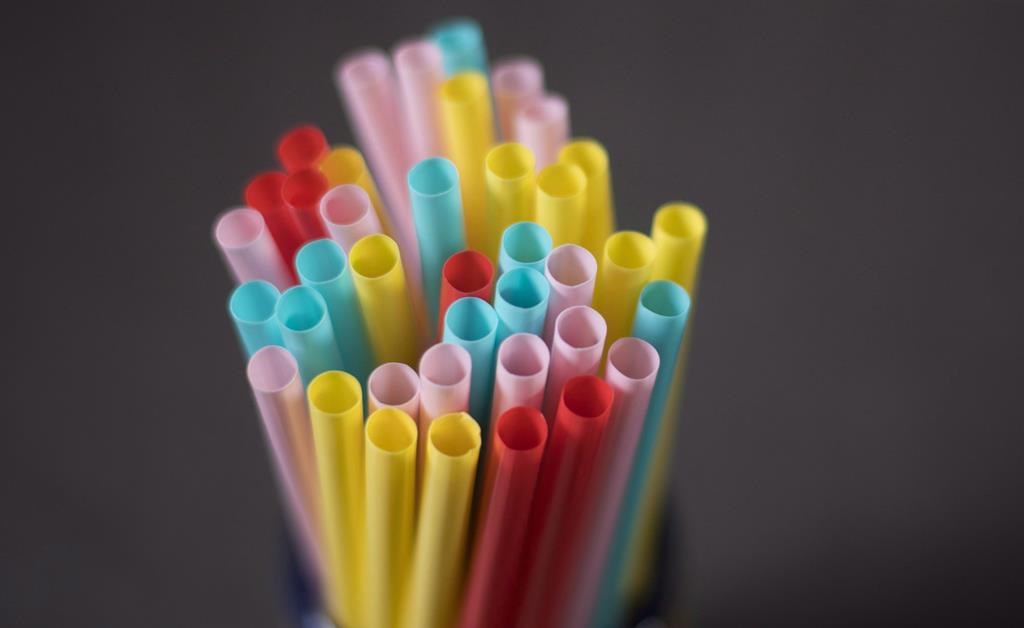Canada’s single-use plastic disposables ban arrives soon – here’s what to expect

Posted Dec 11, 2022 3:24 pm.
The first stage of Canada’s ban on single-use plastics goes into effect Dec. 20. It will begin with phasing out the manufacture and import for sale of a number of plastic-based products.
Numerous categories of single-use and disposable plastics will be banned later this month from a wide range of products including check-out bags, cutlery, straws, stir sticks, and ring carriers.
This comes with the exception of some products like plastic and flexible straws which are not packaged with beverage containers. Although these products will no longer be available for commercial use they can still be sold until Dec. 20, 2023, when the next phase banning those products for sale comes into effect.
The regulations were disclosed earlier in June as an effort by the federal government to achieve net zero waste plastic by 2030.
According to the Government of Canada, Canadians toss nearly three million tons of plastic waste, and only around nine per cent is recycled, with most of the discarded trash ending up in landfills and rivers, lakes and oceans.
Single-use plastic disposables are made from non-renewable fossil fuel-based chemicals.
Related Article: Alberta invests $50M into oil and gas industry transformation challenge
Plastics are known to impact the environment through pollution and greenhouse gas emissions. According to the Natural Resources Defense Council, disposable plastic gained popularity in the mid-19th century and skyrocketed from then onwards.
However, some local business owners are not so keen given the skyrocketing costs of living and soaring inflation in recent times.
“The bags for delivery that’s easy to replace. We can use paper bags from now on,” said Aws Abdul-Latif, owner, and operator of PB & J YYC. “I just feel like for the knives and forks will be costly for getting the wooden ones. Not sure if it’s going to be an easy replacement but we can transfer some of that to the delivery – we’re lucky that we are selling sandwiches.
“We still have some of our customers asking for knives and forks but there is a replacement for it as the wooden one.”
He says despite the easy substitutes of paper for plastic it’ll still be costly to make these swaps.
“Again it’s all going to add extra costs so for example the chocolate that we use and its plastic bags is going to be 80 per cent to 100 per cent more to replace it with the jars,” said Abdul-Latif.
“So as a cost of goods that’s going to be higher. So, in the end, it’s going to cause us to increase our prices for the chocolates. Same with the cups. I’m looking at some paper replacement but it will increase again around 70 to 80 per cent depending on the item.”
Related Article: Federal consumer carbon price to expand to three Atlantic provinces next summer
As for the number of plastic takeout containers and cutlery on the market, he says it was already in shortage when purchasing these products from wholesale.
“I’m not sure if we’re ready yet to replace the production with paper. Hopefully, we will, I’m not against it at all, I’m just questioning the increase of the cost of goods,” said Abdul-Latif.
Abdul-Latif adds they are not quite ready for the transition given the rise in inflation.
“I think it will be great if it takes a little bit longer just because we are in a very difficult time. We are already receiving everything in increases from 10 to 20 per cent,” said Abdul-Latif.
“So to increase another 70 per cent I think the customers will really find it so hard. And we live off of this business. We need the customers to be satisfied and happy.”
Related Article: Canada outlines $9B plan to cut greenhouse gas reduction 40% by 2030
Here are some of the single-use disposable products that will be banned in Canada during the first phase:
Checkout bags
Paper or plastic will no longer be something your grocer’s clerk asks at your local supermarket. Instead, checkout bags that are made completely or mostly of plastic used to carry goods from any business will also be banned under the initial phasing out beginning on Dec. 20.
Cutlery
Any cutlery including knives, forks, spoons, sporks, and chopsticks which contains polystyrene or polyethylene or change their properties after being run through dishwater 100 times.
Fast Food Takeout Containers
The ban also includes clamshell containers, lidded containers, boxes, cups, plates, and bowls made completely or in part from plastic which is intended to transport on the go and ready-to-eat food. All of these plastic products will be banned if they contain the following:
- Expanded or extruded polystyrene foam also known as Sytofoam
- Polyvinyl chloride used to preserve food in sandwich cartons and salad containers
- Carbon black or black plastic food containers that are usually used as disposable coffee cup lids or meat or produce trays
- Oxo-degradable plastic.
Stir Sticks
All types of plastic stir sticks including those used to mix beverages or stop the spilling of liquid from a lid will all be prohibited under the new regulations.
Straws
All straight and flexible plastic drinking straws which are packaged together with beverage containers including juice boxes or pouches will be banned. Single-use plastics which are not packaged together with a beverage container are excluded under certain circumstances including providing accommodation to those with disabilities.
Overall there are five categories of single-use plastic disposables that come into effect starting Dec. 20 of this year which begins with banning any commercial or retail distribution.
Following this, a ban on the sale of these products initiates on Dec. 20, 2023. A full ban on the manufacture, import, and sale for export of plastics comes into effect on Dec. 20, 2025.
In addition to this, prohibition on the manufacture and import of ring-carriers or six-pack rings which are used to carry plastic bottles or aluminum cans will start on June, 20, 2023, with the full ban for the sale of these beginning on June, 20, 2024 and the complete ban for manufacture, import and sale for export starting on Dec. 20, 2025.
–Files from Tiffany Goodwein








